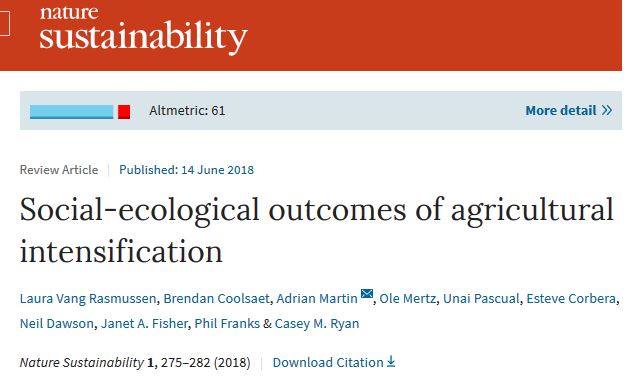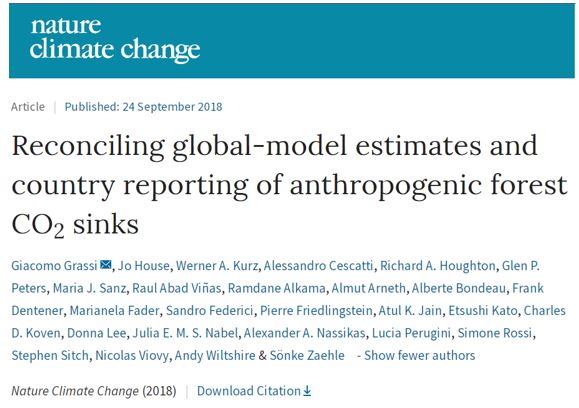June 15, 2018
Published by BC3Research Unai Pascual at June 15, 2018
Categories
Land-use intensification in agrarian landscapes is seen as a key strategy to simultaneously feed humanity and use ecosystems sustainably, but the conditions that support positive social-ecological outcomes remain poorly documented. We address this knowledge gap by synthesizing research that analyses how agricultural intensification affects both ecosystem services and human well-being in low- and middle-income countries.
June 21, 2018
Published by BC3Research Aline Chiabai Marc Neumann at June 21, 2018
The study aims to explore the main drivers influencing the economic appraisal of heat warning systems by integrating epidemiological modelling and benefit-cost analysis. To shed insights on heat wave mortality valuation, we consider three valuation schemes: (i) a traditional one, where the value of a statistical life (VSL) is applied to both displaced and premature mortality; (ii) an intermediate one, with VSL applied for premature mortality and value of a life year (VOLY) for displaced mortality; and (iii) a conservative one, where both premature and displaced mortality are quantified in terms of loss of life expectancy, and then valued using the VOLY approach. When applying these three schemes to Madrid (Spain), we obtain a benefit-cost ratio varying from 12 to 3700
September 26, 2018
Published by BC3Research at September 26, 2018
Achieving the long-term temperature goal of the Paris Agreement requires forest-based mitigation. Collective progress towards this goal will be assessed by the Paris Agreement’s Global stocktake. At present, there is a discrepancy of about 4 GtCO2 yr−1 in global anthropogenic net land-use emissions between global models (reflected in IPCC assessment reports) and aggregated national GHG inventories (under the UNFCCC). We show that a substantial part of this discrepancy (about 3.2 GtCO2 yr−1) can be explained by conceptual differences in anthropogenic forest sink estimation, related to the representation of environmental change impacts and the areas considered as managed.
October 4, 2018
Published by BC3Research at October 4, 2018
Scientists, stakeholders and decision makers face trade-offs between adopting simple or complex approaches when modeling ecosystem services (ES). Complex approaches may be time- and data-intensive, making them more challenging to implement and difficult to scale, but can produce more accurate and locally specific results. In contrast, simple approaches allow for faster assessments but may sacrifice accuracy and credibility. The ARtificial Intelligence for Ecosystem Services (ARIES) modeling platform has endeavored to provide a spectrum of simple to complex ES models that are readily accessible to a broad range of users




